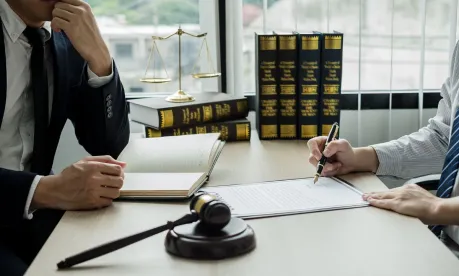A proposed amendment to Federal Rule of Evidence 702, which governs the admissibility of expert testimony in federal court, could clarify the evidentiary burden on proponents of expert testimony and a court’s role regarding its admissibility. Motions under Rule 702, frequently called Daubert motions after the Supreme Court’s opinion Daubert v. Merrell Dow Pharmaceuticals Inc., are used to limit or otherwise exclude an expert’s testimony to a jury. These motions are often critical to a case’s success, especially in fields that rely heavily on experts such as antitrust, product liability, toxic torts, and environmental litigation. An amendment to Rule 702 currently under consideration looks to clarify the proper evidentiary standard for such motions.
Under the seminal cases regarding admissibility of expert testimony, a federal judge acts as a gatekeeper of expert testimony, including by excluding any proposed expert testimony deemed to be unreliable. The proponent of the expert testimony must convince the judge of the reliability of the testimony by a preponderance of the evidence to be admissible.
The proposed changes to Rule 702 clarify these requirements, as the Rule, if amended, would read:
A witness who is qualified as an expert by knowledge, skill, experience, training, or education may testify in the form of an opinion or otherwise if the proponent has demonstrated by a preponderance of the evidence that:
a) the expert’s scientific, technical, or other specialized knowledge will help the trier of fact to understand the evidence or to determine a fact in issue;
b) the testimony is based on sufficient facts or data;
c) the testimony is the product of reliable principles and methods; and
d) the expert has reliably applied expert’s opinion reflects a reliable application of the principles and methods to the facts of the case.
The proposed revisions do not alter the proper standard of admissibility under current Supreme Court precedent, but they would result in some changes to expert testimony practices if adopted. In the May 15, 2021 Report of the Advisory Committee on Evidence Rules, the Advisory Committee expressed concern that some federal courts have mistakenly stated “that the reliability requirements set forth in Rule 702(b) and (d) . . . are questions of weight and not admissibility. . . .” Those statements, the Committee warns, “can be read to misstate Rule 702, because its admissibility requirements must be met by a preponderance of the evidence.” The question of the weight or credibility of expert testimony is one for the jury but the question of admissibility is for the judge. For example, in Hardeman v. Monsanto Co. the Ninth Circuit stated that “expert testimony must be reliable to be admissible” and the reliability inquiry is “flexible and should be applied with a ‘liberal thrust’ favoring admission.”
However, according to the Advisory Committee, the first proposed revision to Rule 702 would clarify the proponent’s requirement to prove the reliability requirements by a preponderance of the evidence without a presumption towards admissibility. The Advisory Committee notes that this solidifies the judge’s role as a “gatekeeper” to exclude unreliable expert testimony that does not satisfy the preponderance of the evidence standard and not leave reliability questions for the jury to decide.
The second revision clarifies that a judge must ensure that the expert opinion is within the bounds of what can be concluded by a reliable application of the expert’s methodology to the facts. Again, the proposed revision does not alter the current Rule 702 standard, but does clarify that it is the task of the judge to evaluate whether the ultimate expert opinion is properly derived before it may be heard by a jury.
Much of what gives expert testimony its value is its likelihood of accuracy. Thus, there is an inherent overlap between the reliability of such testimony, which is required for admissibility, and its evidentiary value, which is a determination left for the jury. Proponents of the amendment believe that preventing courts from putting questions of admissibility to a jury will minimize the potential risk that a jury is swayed by unreliable expert testimony. Critics of the amendment believe that the rule change further diminishes the jury’s role and, as a consequence, judges will begin weighing the strength of expert testimony—in other words, weighing its evidentiary value—when their role is only to determine its reliability.
The public comment period for the amendment closed earlier this year and the Supreme Court, which has until May 2023 to send the revisions to Congress for approval, is expected to review the changes this fall. If approved by Congress, the changes are likely to go into effect in December of 2023.



 />i
/>i

